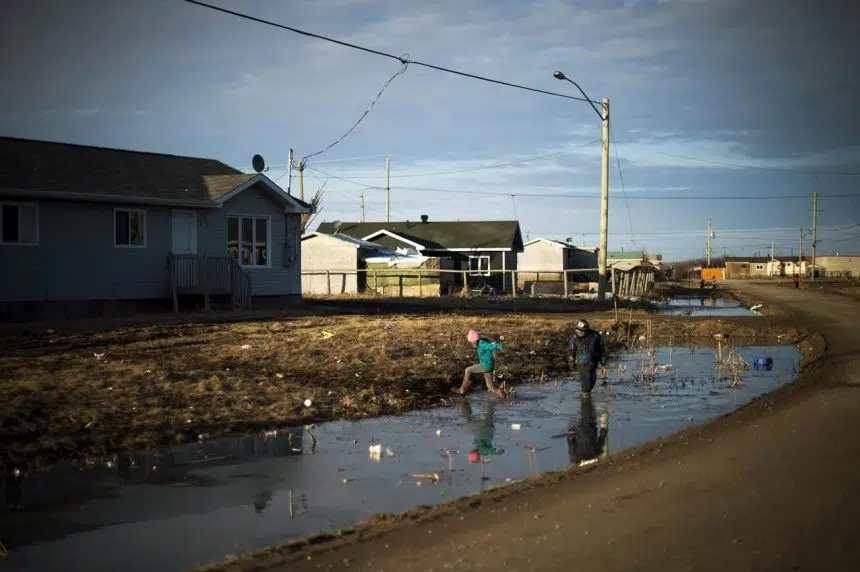OTTAWA — First Nations children who were separated from their families by a chronically underfunded welfare system could receive more than $2 billion in compensation following an order from the Canadian Human Rights Tribunal.
More than three years ago, the tribunal ruled there was clear discrimination by the federal government for kids living on reserves who needed help from child welfare agencies. Ottawa, the tribunal said, didn’t ensure services available to on-reserve children were funded at anywhere near the same levels as provincially funded services available off-reserve.
The tribunal reserved its decision on compensation at that time.
On Friday, the tribunal ruled that Ottawa’s discrimination was “wilful and reckless,” allowing it to award the maximum compensation allowed by legislation.
The award includes $40,000 for every child unnecessarily taken away from their families since Jan. 1, 2006 and another $40,000 for each of their parents or grandparents. Similar amounts will go to children abused in foster care, and children on- and off-reserve who were taken into care because they couldn’t access services there, including mental health supports, suicide prevention and basic medical devices.
“Overall, this is a good day for kids,” said Cindy Blackstock, executive director of the First Nations Child and Family Caring Society. “Overall, this is also a wake-up call for Canadians.”
The society was among the organizations that brought the original human rights complaint in 2007.
The Assembly of First Nations estimates the number of children impacted at around 54,000, bringing the minimum compensation bill to $2.1 billion. If all of their parents also get compensation, that number would double.
Indigenous children make up more than half of children in foster care in Canada, even though they represent just seven per cent of all children under the age of 15. In some provinces, as many as 90 per cent of kids in care are First Nations, Metis and Inuit.
Blackstock says these high numbers are the result of a system that refused to provide adequate funding to work with families on-reserve to prevent their kids from being placed in care.
The only time provincial and federal funding was at the same level was when a child was in care and the federal government picked up the provincially tab for foster care. That created an incentive to take kids from their families, advocates say.
The result was the mass separation of Indigenous children from their parents and placing them in a foster care system that Indigenous leaders say had more First Nations kids than at the height of the residential-schools era.
Since its first ruling in 2016, the tribunal has said 10 times that Ottawa failed to comply with its orders to fix the funding discrepancies. In 2018, the Liberals finally committed to funding prevention services at the needed levels. Blackstock said while that has happened, Ottawa refused to fund supports for those services like a building to house programs, for example.
Kevin Deagle, spokesman for Indigenous Services Minister Seamus O’Regan, said Friday the government is reviewing the order that touches on “important and complex issues” the Liberals take seriously.
“We understand that systemic issues require systemic responses,” he said. “We’re dealing with a broken system and we need to fix it.”
If the government wants to appeal, Blackstock said they have to file it by Oct. 7, which would come two weeks before voting day. She said Canadians should ask every candidate that comes to their doorstep what their plan is to fix this long-standing discrimination towards vulnerable children.
“Treating kids fairly should not require a court order,” she said.
Mia Rabson, The Canadian Press







